
Top Businessgraduate schools

Top Business graduate schools
Looking for the top Business graduate schools? We put together a comprehensive list of the best graduate programs for Business, and put the results below. We include the acceptance rate, average GRE scores, and a brief description of each - all the information you need to kick start your research. Read on!
Table of contents
11.Conclusion
Columbia University Business school acceptance rate
Columbia University's Business acceptance rate is 22.06%. The average GRE Verbal Reasoning score for Columbia University Business is 161, and the Quantitative Reasoning score is 161. The average GMAT score for Columbia University Business is 732.
Ajay Suresh from New York, NY, USA / Wikimedia Commons / "Columbia Business School - Uris Hall" / CC BY 2.0
Columbia University's Business School, known as Columbia Business School (CBS), stands as a prestigious institution with a rich legacy and a global impact. Established in 1916, CBS has been a trailblazer in business education, cultivating innovative thinkers and transformative leaders. Situated in the vibrant city of New York, CBS provides unparalleled access to industry opportunities and a thriving business ecosystem. With its selective acceptance rate, CBS attracts exceptional students from diverse backgrounds. The school's rigorous curriculum, renowned faculty, and emphasis on experiential learning prepare graduates to navigate complex business challenges. Notably, CBS boasts an impressive alumni network that includes notable figures such as Warren Buffett, Henry Kravis and Sallie Krawcheck. This network provides valuable connections and mentorship opportunities for students. With a commitment to academic excellence, entrepreneurship, and global perspectives, Columbia Business School continues to shape the future of business by nurturing leaders who make a significant impact in their fields.
Harvard University Business school acceptance rate
Harvard University's Business acceptance rate is 12.28%. The average GRE Verbal Reasoning score for Harvard University Business is 147-170, and the Quantitative Reasoning score is 150-170. The average GMAT score for Harvard University Business is 730.

Marco Carrasco / Wikimedia Commons / "Harvard University" / CC BY-SA 4.0
Harvard University's Harvard Business School (HBS) stands as an iconic and prestigious institution renowned for its unparalleled business education. Established in 1908, HBS has consistently been a global leader in shaping business practices and cultivating influential leaders. With an incredibly selective admission rate of around 11%, HBS attracts top-tier talent from around the world. The school's case method, pioneered by HBS, immerses students in real-world scenarios, fostering critical thinking and decision-making skills. HBS boasts an accomplished faculty composed of leading scholars, practitioners, and Nobel laureates, ensuring a world-class learning experience. The school's vast alumni network spans over 80 countries and includes prominent figures across industries. HBS graduates have demonstrated outstanding career outcomes, with 95% securing employment within three months of graduation. By nurturing an environment of intellectual curiosity, collaboration, and ethical leadership, HBS empowers its students to make a lasting impact on the global business landscape.
Massachusetts Institute of Technology (Sloan) Business school acceptance rate
Massachusetts Institute of Technology (Sloan)'s Business acceptance rate is 6.32%. The average GRE Verbal Reasoning score for Massachusetts Institute of Technology (Sloan) Business is 157-168, and the Quantitative Reasoning score is 158-169. The average GMAT score for Massachusetts Institute of Technology (Sloan) Business is 730.
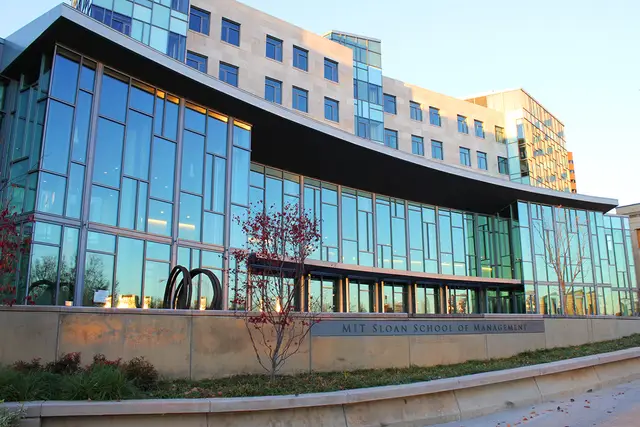
Vitor Pamplona / Wikimedia Commons / "MIT Sloan School of Management" / CC BY 2.0
The Massachusetts Institute of Technology (MIT) Sloan School of Management stands as a prestigious institution known for its world-class business education. Founded in 1914, Sloan has consistently pushed the boundaries of innovation and entrepreneurship. With a highly selective acceptance rate, Sloan attracts exceptional students from diverse backgrounds who are drawn to its unique blend of rigorous academics and cutting-edge research. The school's emphasis on analytics and data-driven decision-making sets it apart, equipping students with the skills to navigate complex business challenges. Sloan's close-knit community fosters collaboration and encourages interdisciplinary exploration, creating an environment that inspires creative thinking and problem-solving. Additionally, the school's location in the vibrant ecosystem of MIT provides unparalleled opportunities for collaboration with renowned researchers, startups, and industry leaders. This combination of academic excellence, technological focus, and collaborative spirit makes MIT Sloan a compelling choice for students seeking to drive innovation and make a lasting impact in the business world.
Northwestern University (Kellogg) Business school acceptance rate
Northwestern University (Kellogg)'s Business acceptance rate is 10.96%. The average GRE Verbal Reasoning score for Northwestern University (Kellogg) Business is 162, and the Quantitative Reasoning score is 163. The average GMAT score for Northwestern University (Kellogg) Business is 729.
Joseph Gage / Wikimedia Commons / "Northwestern University (Kellogg)." / CC BY-SA 2.0
Established in 1908, Northwestern University's Kellogg School of Business has evolved into a leading institution renowned for its exceptional business education. Kellogg's commitment to collaboration and interdisciplinary learning has garnered global recognition, consistently ranking among the top business schools worldwide. With an impressive faculty-to-student ratio of 1:6, Kellogg offers a highly personalized learning experience. The school's innovative MMM Program, launched in 1951, uniquely combines management, design thinking, and technology management. Kellogg boasts a strong alumni network of over 60,000 professionals spread across 130 countries, providing unparalleled networking opportunities. Moreover, Kellogg's graduates enjoy remarkable career outcomes, with 95% of the class of 2020 receiving job offers within three months of graduation. With its unwavering focus on leadership development and ethical decision-making, Kellogg equips students to become impactful leaders who shape the future of business.
Stanford University Business school acceptance rate
Stanford University's Business acceptance rate is 6.89%. The average GRE Verbal Reasoning score for Stanford University Business is 164, and the Quantitative Reasoning score is 163. The average GMAT score for Stanford University Business is 737.
Steve Castillo / Wikimedia Commons / "Stanford University." / CC BY 3.0
Stanford University's Graduate School of Business (GSB) holds an illustrious reputation as one of the world's foremost business institutions. Founded in 1925, the GSB has been at the forefront of innovation, entrepreneurship, and leadership development. The school's location in the heart of Silicon Valley provides unparalleled access to industry pioneers, fostering a vibrant ecosystem of collaboration and idea exchange. Stanford GSB's renowned faculty comprises accomplished scholars and industry experts who engage students through dynamic teaching methods. The school's rigorous curriculum offers flexibility and encourages interdisciplinary exploration. With an acceptance rate of around 6%, Stanford GSB attracts top talent from diverse backgrounds, ensuring a rich and inclusive learning environment. The GSB's commitment to social impact is exemplified through programs like the Stanford Seed, which supports entrepreneurs in emerging economies. By equipping students with the skills to navigate complexity and drive positive change, Stanford GSB prepares graduates to become influential leaders shaping the future of global business.
University of California, Berkeley (Haas) Business school acceptance rate
University of California, Berkeley (Haas)'s Business acceptance rate is 7.57%. The average GRE Verbal Reasoning score for University of California, Berkeley (Haas) Business is 161, and the Quantitative Reasoning score is 163. The average GMAT score for University of California, Berkeley (Haas) Business is 729.
Broken Sphere / Wikimedia Commons / "Haas School of Business west entrance" / CC BY-SA 3.0
Haas School of Business, part of the University of California, Berkeley, has established itself as a pioneering institution in business education since its founding in 1898. With its unique location in the dynamic San Francisco Bay Area, Haas benefits from a vibrant ecosystem of entrepreneurship and technological innovation. The school's culture is defined by collaboration, leadership, and a strong sense of community. Its rigorous academic programs, led by esteemed faculty, equip students with practical skills and knowledge to thrive in a rapidly evolving business landscape. The school also offers student housing in Berkeley to support its students. Notably, Haas boasts exceptional career outcomes, with 95% of graduates securing employment within three months of graduation. With a focus on innovation, inclusivity, and social impact, Haas leaves a lasting impression by nurturing influential leaders who shape the future of business.

Achievable GRE - $199
Hit your GRE target score on the first try with Achievable's interactive online exam preparation course. Includes everything you need: unlimited quantitative practice questions, an easy-to-understand online textbook, 24 verbal / reading comprehension practice exams, 250 vocabulary words, and unlimited instant essay grading.
Easy-to-understand online textbook
Infinite randomized questions
200+ quant templates
30+ verbal sections
250 vocab words
Unlimited essay grading
University of Chicago Booth Business school acceptance rate
University of Chicago Booth's Business acceptance rate is 14.27%. The average GRE Verbal Reasoning score for University of Chicago Booth Business is 162, and the Quantitative Reasoning score is 163. The average GMAT score for University of Chicago Booth Business is 729.

Matthew G. Bisanz / Wikimedia Commons / "Harper Center at the University of Chicago." / CC BY-SA 3.0
The University of Chicago Booth School of Business is also known as Chicago Booth. It's graduate business school of the University of Chicago, a private university in Chicago, Illinois that is highly respected for its Economics faculty in particular. Chicago Booth is the second-oldest business school in the U.S., and was founded in 1898, and has more Nobel laureates in the Economic Sciences than any other business school in the world with 10. Chicago Booth has has the third-largest endowment of any business school in the United States. Students choose Chicago Booth because of its economics prowess and its strong sense of academic freedom. Students have a lot of freedom to take risks and set their own course within the curriculum.
University of Michigan, Ann Arbor (Ross) Business school acceptance rate
University of Michigan, Ann Arbor (Ross)'s Business acceptance rate is 9.94%. The average GRE Verbal Reasoning score for University of Michigan, Ann Arbor (Ross) Business is 160, and the Quantitative Reasoning score is 160. The average GMAT score for University of Michigan, Ann Arbor (Ross) Business is 720.
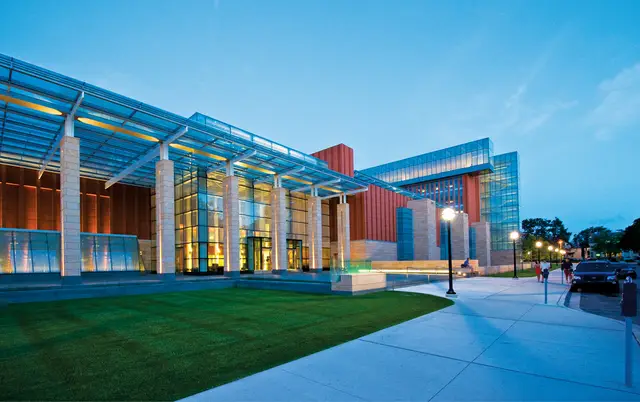
Michigan Ross / Wikimedia Commons / "Ross School Exterior" / CC BY-SA 3.0
Established in 1924, the University of Michigan, Ann Arbor (Ross) School of Business has garnered a reputation for excellence that sets it apart from other institutions. With numerous accolades, including being consistently ranked among the top business schools globally, Ross offers a transformative educational experience. The program prides itself on its action-based learning approach, allowing students to apply classroom knowledge to real-world challenges through programs like the Ross Experiences in Action-Based Learning (REAL) initiative. Located in Ann Arbor, Michigan, the school benefits from its close proximity to major corporations and a thriving entrepreneurial ecosystem, offering students unparalleled networking and internship opportunities. The impressive statistics speak for themselves, with high employment rates and starting salaries for graduates. Ross fosters a supportive and collaborative environment, empowering students to become innovative leaders who make a positive impact in their chosen fields.
University of Pennsylvania (Wharton) Business school acceptance rate
University of Pennsylvania (Wharton)'s Business acceptance rate is 13.88%. The average GRE Verbal Reasoning score for University of Pennsylvania (Wharton) Business is 162, and the Quantitative Reasoning score is 162. The average GMAT score for University of Pennsylvania (Wharton) Business is 733.

WestCoastivieS / Wikimedia Commons / "Huntsman Hall at the University of Pennsylvania" / CC0
The Wharton School of the University of Pennsylvania, established in 1881, holds an esteemed position as one of the world's foremost business institutions. Renowned for its rigorous academic programs and groundbreaking research, Wharton consistently ranks among the top business schools globally. With an acceptance rate of around 19%, Wharton attracts a diverse and talented student body. The school's curriculum combines theoretical knowledge with hands-on experiential learning, preparing graduates for success in the ever-evolving business landscape. Wharton's extensive alumni network spans over 100 countries and includes influential leaders across industries. The school's commitment to innovation is reflected in initiatives like the Wharton Innovation Fund, which supports entrepreneurial ventures. Furthermore, Wharton graduates enjoy exceptional career prospects, with 95% securing employment within three months of graduation. With a legacy of excellence, Wharton continues to shape the future of business through its cutting-edge research, global perspective, and transformative educational experiences.
Yale University Business school acceptance rate
Yale University's Business acceptance rate is 9.00%. The average GRE Verbal Reasoning score for Yale University Business is 164, and the Quantitative Reasoning score is 166. The average GMAT score for Yale University Business is 725.

HOUYIMIN / Wikimedia Commons / "Edward P. Evans Hall" / CC BY-SA 4.0
Yale University's School of Management (SOM), established in 1976, has quickly risen to prominence as a top-tier business institution with its distinctive approach to education. SOM combines rigorous academics, experiential learning, and a focus on societal impact to prepare students for success in the business world. SOM attracts talented and diverse students who are passionate about making a difference. The school's commitment to excellence is reflected in its impressive career outcomes, with 94% of the class of 2020 securing employment within three months of graduation. Notably, SOM graduates thrive in a variety of industries, including consulting, technology, finance, and social impact organizations. With its rich history, rigorous programs, and emphasis on social responsibility, Yale SOM continues to shape the next generation of business leaders.
Conclusion
And there you have it - the top Business graduate schools. These are some of the best schools in the country for Business, and admission into any of them would be a great accomplishment that could set you up for a strong career. Good luck!
Interested in the top graduate schools for other programs?
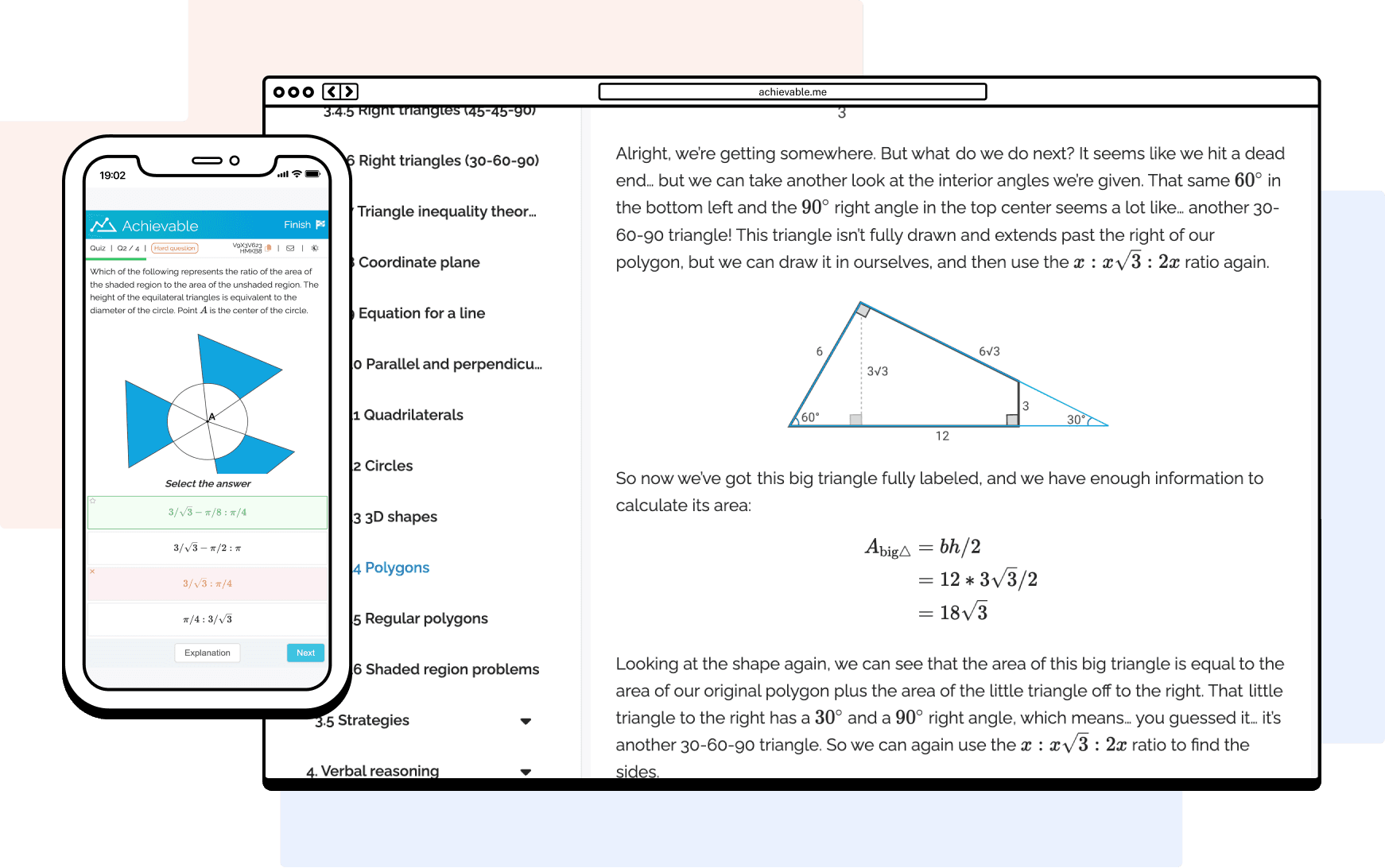
Hit your target score
Achievable is the best online GRE exam prep course: effective, personalized, and convenient. With Achievable, you'll spend less time studying and hit your target score with confidence.